In Sudan’s Blue Nile State displaced families wait for water in Damazine
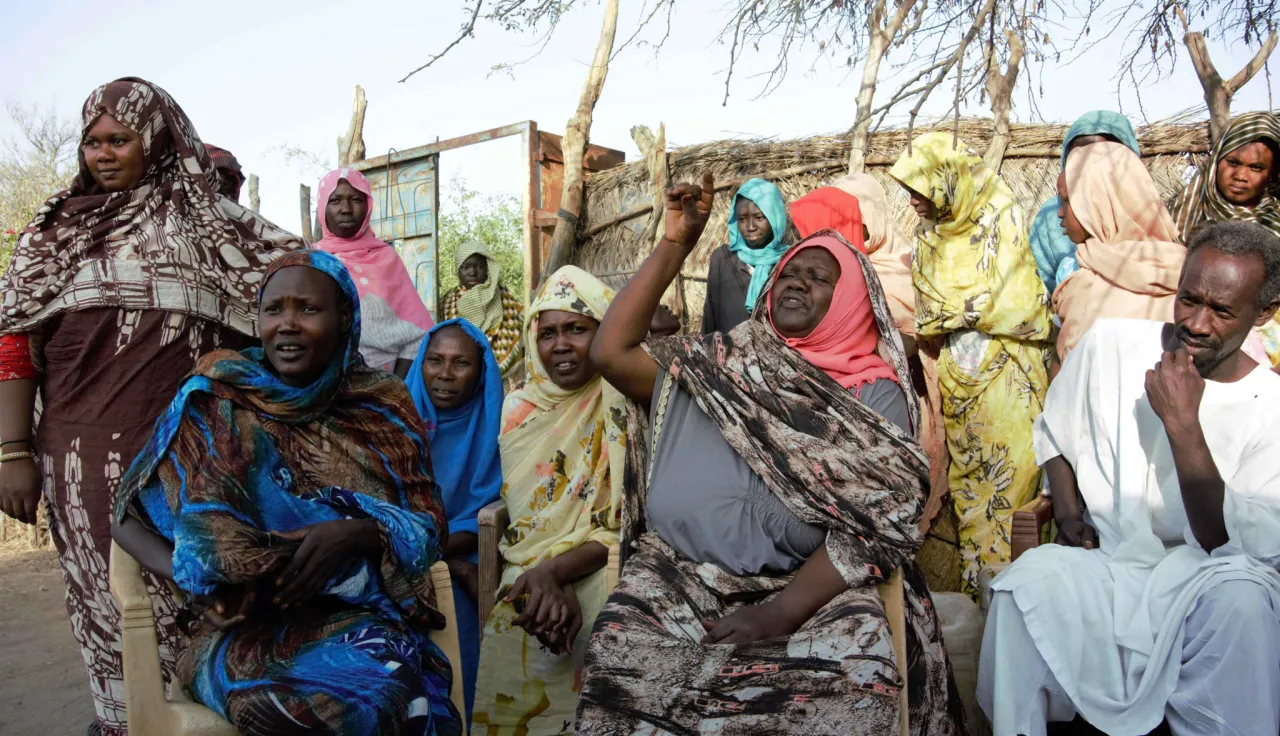
Suad Mohammed brought plastic chairs for her visitors, set them in a circle outside her straw-matting compound and sat down heavily in one of them.
As a dozen or so women and young girls crowded around her, a group of curious men and boys gathered nearby to listen. Speaking for all the women present, Suad, the mother of eight children, raised her voice so that everyone could hear.
"Do you think the 40 litres of water I fetch from the river each day is enough for all my family's needs?" she asked, casting a challenging glance at her onlookers. "The answer is no." The young girls standing behind her giggled shyly and nodded approval.
Then another woman, Susan, who was sitting next to Suad spoke up equally forcefully. "Our husbands cut grass and firewood to sell in the market and don't earn much money. We can't afford 100 Sudanese pounds (about two US dollars) for a barrel of water from the passing donkey carts, so we go to the river to fill our jerrycans. Each trip takes us an hour," she explained.
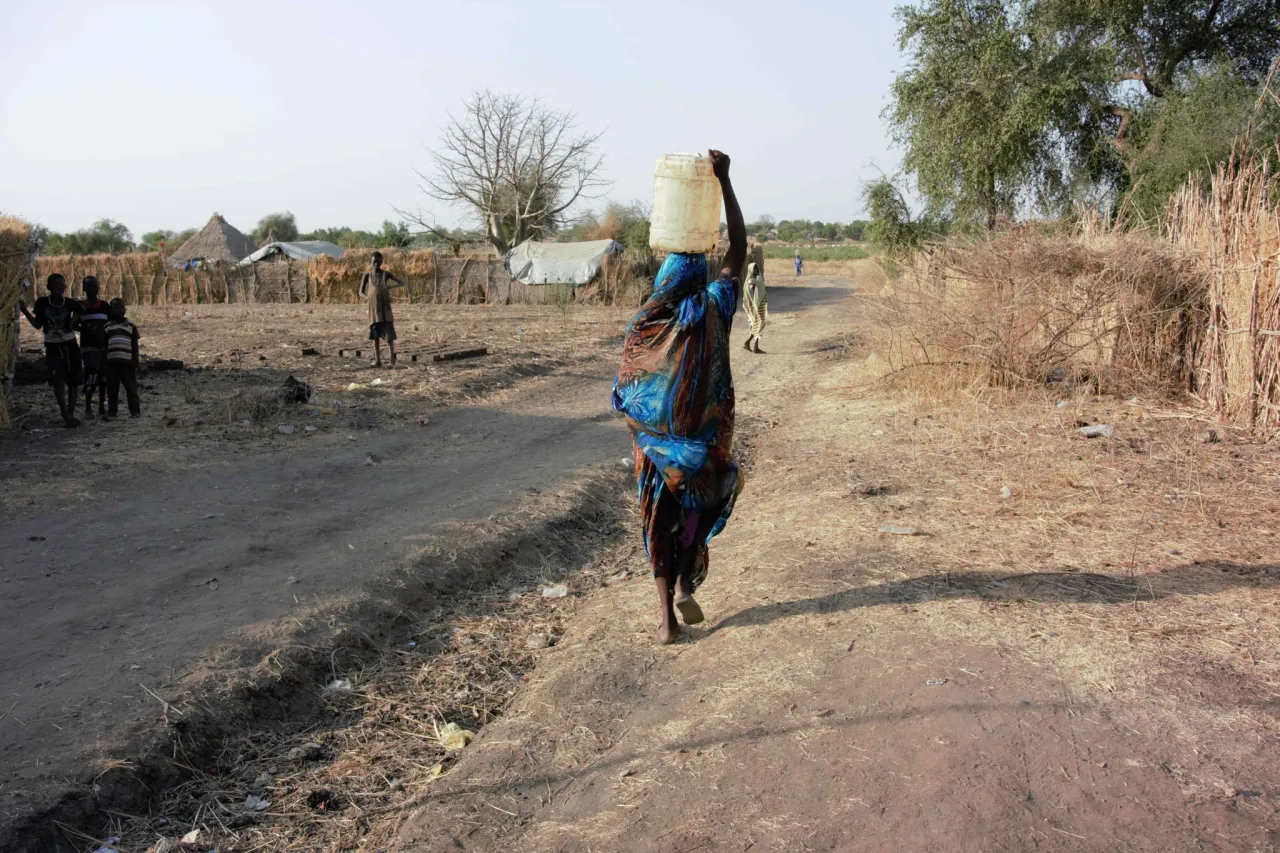
Suad’s neighbor Susan walks for an hour a day to bring water from the river to her home. Photo: Jessica Barry / ICRC
Asked whether their husbands ever helped them fetch water, Suad and Susan dismissed such an idea. "Only if they carry it on a motorbike. It's women's work, and we walk."
A couple of hundred metres away, a tall black-and-white water tank towered over the thatched houses of the al-Rusieres settlement where Suad and Susan are living. The area is home to hundreds of families who fled to safety on the outskirts of Damazine when their villages were attacked during the fighting that has rocked Blue Nile State sporadically since 2011. Over time, as more and more displaced families (IDPs) arrived, it strained the city's water supply to such an extent that the authorities diverted the water that filled the Rusieres tank and piped it to parts of the city where it was becoming scarce.
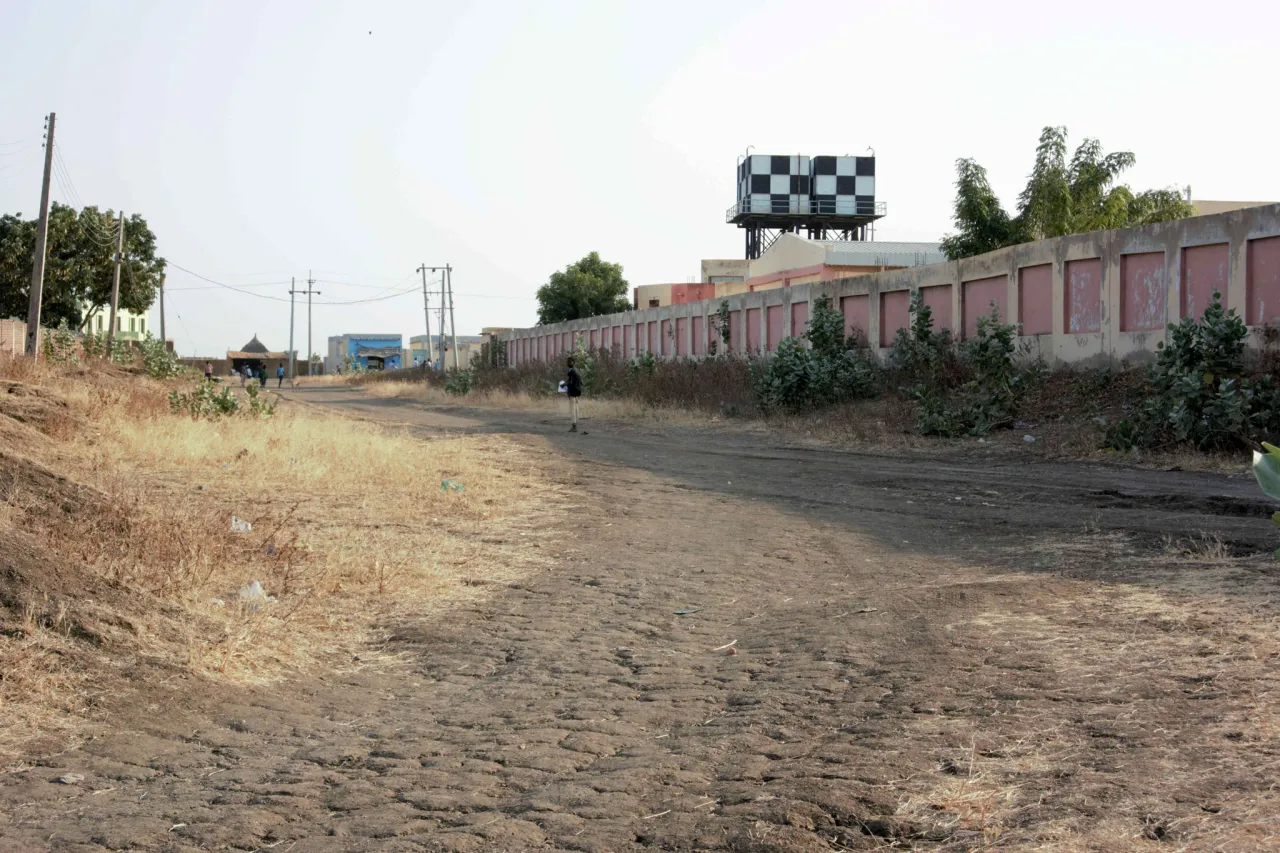
A black-and-white water tank towers over the al-Rusieres settlement were the displaced families are living. Photo: Jessica Barry / ICRC
Meanwhile, the water authority tried to find a solution for the IDPs.
"We've heard there is a plan to fill the tank again," remarked Suad. "But that is all we know."
The project Suad mentioned involved the authorities building a 350 metric-cube concrete reservoir that would be fed from several different groundwater sources, then constructing a pumping station, and laying a transmission line to the Rusieres tank from where water could be piped into the families' compounds. It was a complex and ambitious project but made sense. Unfortunately, because of a lack of funding, the project stalled a few months after it was launched in 2018.
Anxious to complete the work that had already been started, the General Director of the Damazine Water Authority, Abdelrahman Mohammed Ahmed, approached the ICRC who agreed to support the project technically and financially since the principal beneficiaries would be IDPs. In addition, in line with a priority to focus on urban water schemes for conflict-affected communities, the ICRC Water and Habitat department in Khartoum proposed a longer-term second phase benefitting all the city's 88,000 inhabitants. This would involve an in-depth study for a masterplan of Damazine with an analysis of the water infrastructure so that the authorities could more easily organize their resources and planning in the future. The local water board agreed.
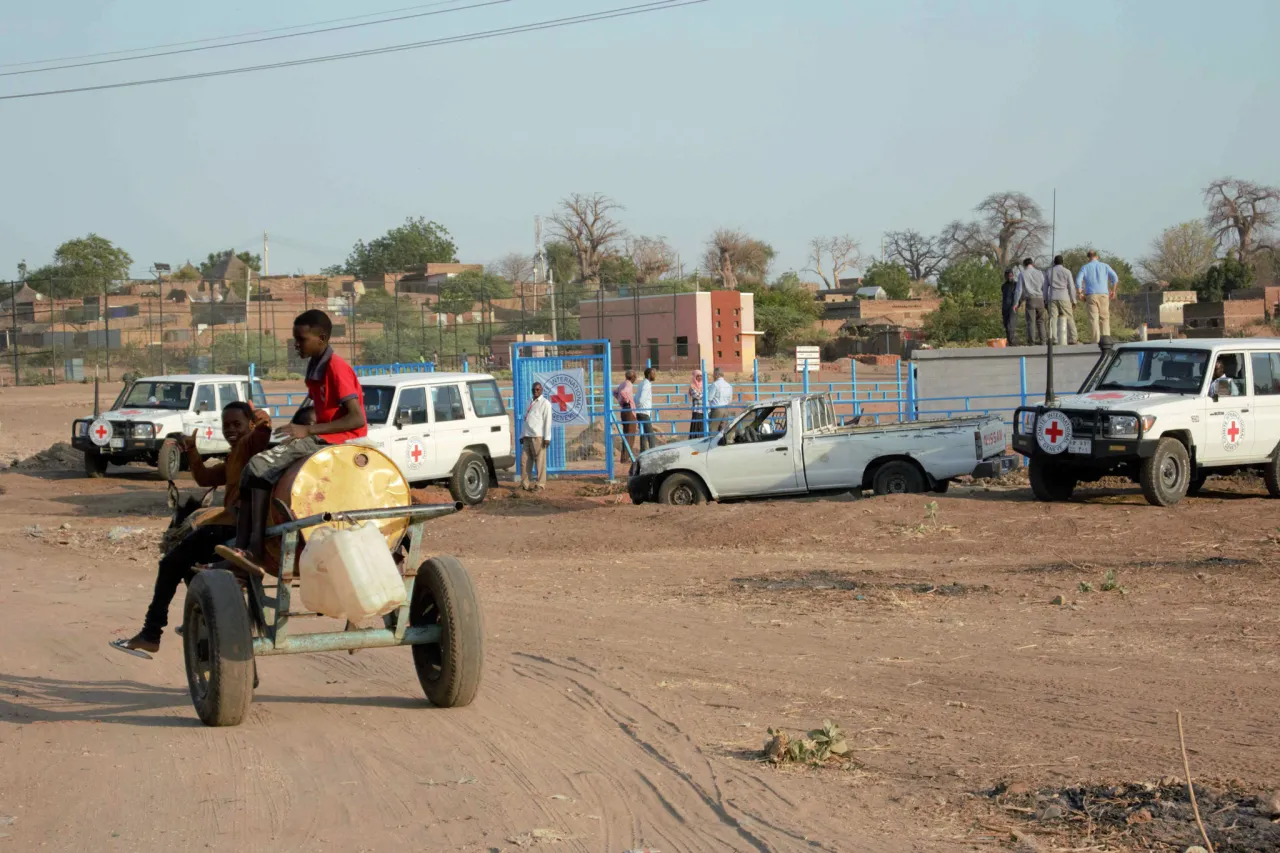
A donkey cart laden with a barrel of river water passes in front of the newly built concrete reservoir on their way to the settlement. Photo: Jessica Barry / ICRC
The first phase of the al-Rusieres project, which will benefit 13,500 IDPs, is now underway again thanks to the joint efforts of the water authority and ICRC engineers. The concrete reservoir has been built and the construction of the pumping station is about to start.
During a visit to the site one recent afternoon, laden donkey carts trundled past the newly built structure on their way to the settlement to sell water. Surrounded by blue railings, the reservoir looked impressive against the brown landscape. The engineers clambered on to its roof and opened the manhole to look inside.
"Before continuing to the next stage, we need to verify that all the technical issues involved in building the reservoir are complete, and the water level stable," remarked Ivano Marati, who is heading the ICRC team. "It has been a very long and complicated process, but the cooperation with the authorities has been excellent, and I am happy to say that everything seems to be on track."
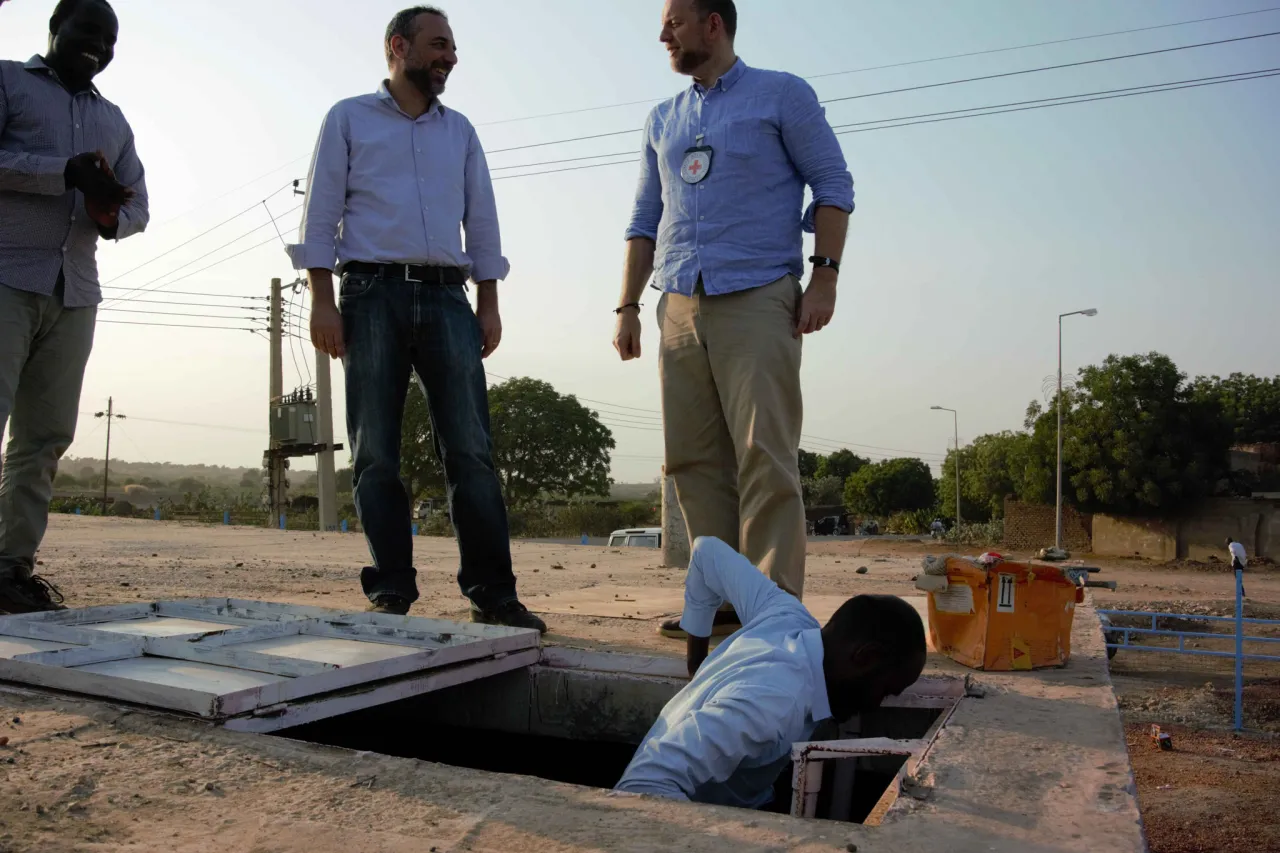
ICRC and local authority water engineers inspect the water level in the newly built reservoir. Photo: Jessica Barry / ICRC
Once the pumping station is operational and the three-kilometre transmission line connecting it and the reservoir to the settlement's water tank has been laid, everything will be ready to start piping water into the IDP families' compounds again. "Everyone in al-Rusieres is longing for that moment to arrive," remarked Mr. Abdelrahman Ahmed, who has championed the project from the start.
For Susan and Suad meanwhile, the black-and-white tank that towers above their settlement is a symbol of hope that in a few months' time it will be back in use, their children will no longer fall sick from drinking dirty river water, and the two women will no longer have to wash their dishes from a jerrycan.
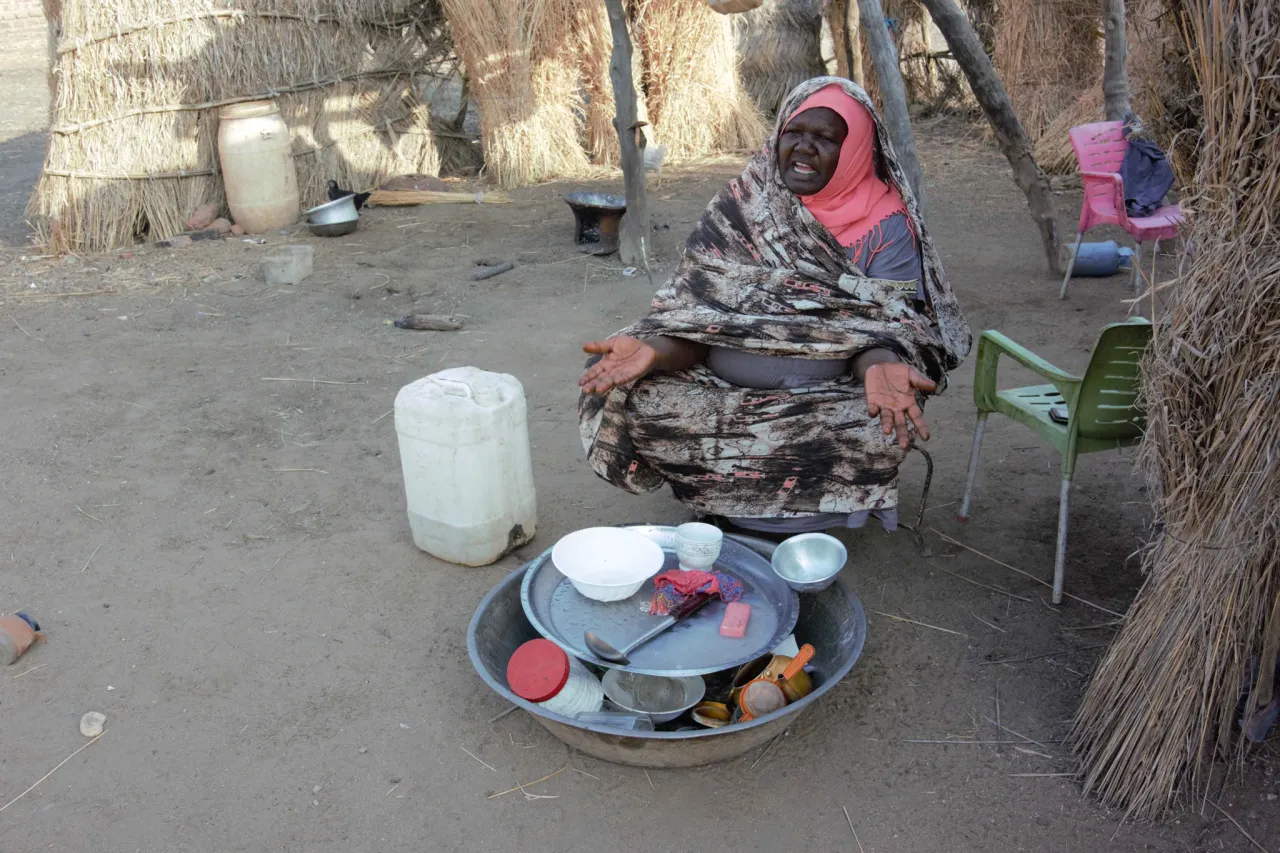
Suad washes the dishes in her family’s compound with water from a jerrycan. Photo: Jessica Barry / ICRC



